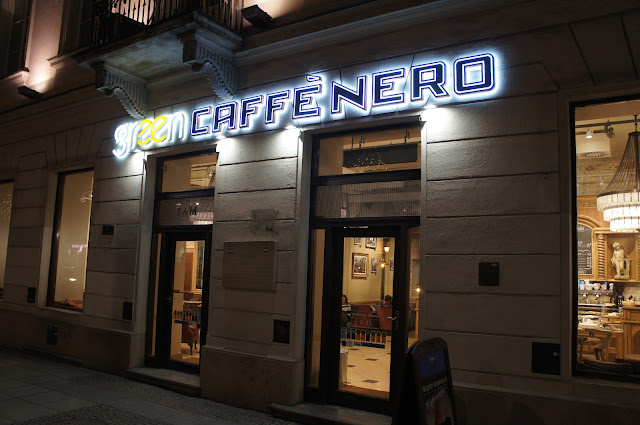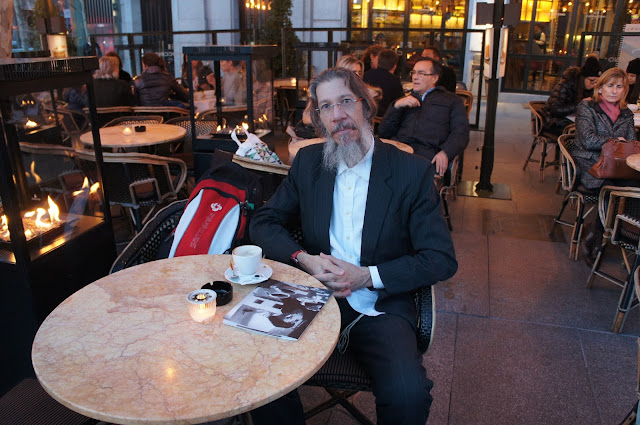JACOB JR, MY JEWISH WORLD. THE JEWISH KIELCE. KIELCE/POLAND
In the second half of the nineteenth century, due to the rapid development of Jewish settlement in Kielce, the local Jewsih community faced a necessity of orginising a new burial place. Previously, few Jews of Kielce burried their dead in the cemetery in nearby Checiny. Because of this in 1868 land in the farm Pakosz was purchased at the junction of the current Pakosz Dolny and Kusocinskiego Strets. At that time it was a parcel of land located outside built-up áreas. Meir Baraban in his published in 1929 essay "Historical Monuments of Jews in Poland" wrote tha t the jews of Kielce "bought the square for the cemetery very far from the town and there they burry their dead even today". The first documented burial took place two years later. The brotherhood of Chewra Kadisza took care of organization and management of the cemetery. In Kielce also functioned a society called Chesed Shel Emet, which covered the cost of funerals of the poor and lonely. With time, a mortuary was built, which was called in Hebrew beyt tahara, the accomodation for the carataker and gravedigger was furnished, the fence was built and the access road was hardened. Initially a small área of the cemetery was enlarged in the twenties of the 20th century.
The cemetery is the burial place of many people who played a significant role in the life of Kielce. In 1915 buried there was Chaim Szmuel Horowitz, known as the tzadik of Checiny, the great-grandson of the famous Seer of Lublin, and two years later they also buried there Motele Twerski ie Mordechai Kuzmirer originating from the Chernobyl Hasidic dynasty.
In 1931 a book entitled "Dom zywych" ("The house of living") was published. It contained the inventory of tombstones from the Jewish cemetery in Kielce, which was written by Mosze Menechem Mendel and it also contained the information on the buried within prominent personages.
During the World War II on the territory of the necropolis Nazis performed nemerous executions on the Jewish population. Bodies of the murdered Jews and those who died in the ghetto in Kielce were buried there as well.
THE POGROM
 On July 1, 1946, a nine-year-old non Jewish boy, Henryk Blaszczky, left his home in Kielce, without informing his parentes. When he returned on July 3, the boy told his parentes and the police, in na effort to acoid punishment for wandering off, that he had been kidnapped and hidden in the basement of the local Jewish Committee building on 7 Planty Street. The Committee building sheltered up to 180 Jews, and housed various Jewish institutions operating in Kielce at the time. The local police went to investigate the alleged crime in the building, and even though Henryk's story began to unravel (the building, for example, had no basement), a large crowed of angry Poles, including one thousand workers from the Ludwikow steel mill, gathered outside the building.
On July 1, 1946, a nine-year-old non Jewish boy, Henryk Blaszczky, left his home in Kielce, without informing his parentes. When he returned on July 3, the boy told his parentes and the police, in na effort to acoid punishment for wandering off, that he had been kidnapped and hidden in the basement of the local Jewish Committee building on 7 Planty Street. The Committee building sheltered up to 180 Jews, and housed various Jewish institutions operating in Kielce at the time. The local police went to investigate the alleged crime in the building, and even though Henryk's story began to unravel (the building, for example, had no basement), a large crowed of angry Poles, including one thousand workers from the Ludwikow steel mill, gathered outside the building.
Polish soldiers and policemen entered the building and called upon the Jewish residentes to surrender any weapons. After na unidentified individual fired a shot, officials and civilians fired upon the Jews inside the building, killing ssome of them. Outside, the angry crowed vciously beat Jews fleeing the shooting, or driven onto the street by the attackers, killing some of them. By day's end, civilians, soldiers and police had killed 42
Jews and injured 40 others. Two non-Jewish Poles died as well, lilled either by Jewish residentes inside the building or by fellow non-Jewsih Poles for offering aid to the Jewish victims.
On the 8th July 1946 the cemetery was the place of the funeral of the victims of the Kielce pogrom, Coffins with the bodies were laid in a mass grave. The funeral ceremony was attended by several Thousand people, including representatives of national and foreign Jewish organizations, political parties.
 On July 1, 1946, a nine-year-old non Jewish boy, Henryk Blaszczky, left his home in Kielce, without informing his parentes. When he returned on July 3, the boy told his parentes and the police, in na effort to acoid punishment for wandering off, that he had been kidnapped and hidden in the basement of the local Jewish Committee building on 7 Planty Street. The Committee building sheltered up to 180 Jews, and housed various Jewish institutions operating in Kielce at the time. The local police went to investigate the alleged crime in the building, and even though Henryk's story began to unravel (the building, for example, had no basement), a large crowed of angry Poles, including one thousand workers from the Ludwikow steel mill, gathered outside the building.
On July 1, 1946, a nine-year-old non Jewish boy, Henryk Blaszczky, left his home in Kielce, without informing his parentes. When he returned on July 3, the boy told his parentes and the police, in na effort to acoid punishment for wandering off, that he had been kidnapped and hidden in the basement of the local Jewish Committee building on 7 Planty Street. The Committee building sheltered up to 180 Jews, and housed various Jewish institutions operating in Kielce at the time. The local police went to investigate the alleged crime in the building, and even though Henryk's story began to unravel (the building, for example, had no basement), a large crowed of angry Poles, including one thousand workers from the Ludwikow steel mill, gathered outside the building.Polish soldiers and policemen entered the building and called upon the Jewish residentes to surrender any weapons. After na unidentified individual fired a shot, officials and civilians fired upon the Jews inside the building, killing ssome of them. Outside, the angry crowed vciously beat Jews fleeing the shooting, or driven onto the street by the attackers, killing some of them. By day's end, civilians, soldiers and police had killed 42
Jews and injured 40 others. Two non-Jewish Poles died as well, lilled either by Jewish residentes inside the building or by fellow non-Jewsih Poles for offering aid to the Jewish victims.
On the 8th July 1946 the cemetery was the place of the funeral of the victims of the Kielce pogrom, Coffins with the bodies were laid in a mass grave. The funeral ceremony was attended by several Thousand people, including representatives of national and foreign Jewish organizations, political parties.
Shalom! Aleichem.
Suporte cultural: Jacob Jr. B.A.C.E., avec L'Integration d'Association avec Israel et dans le Monde/Cz.












Comments
Post a Comment